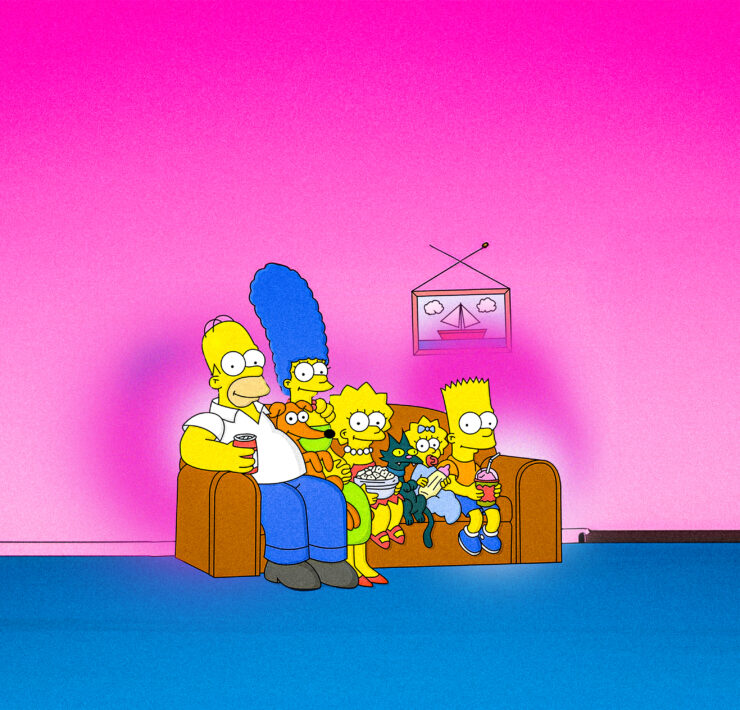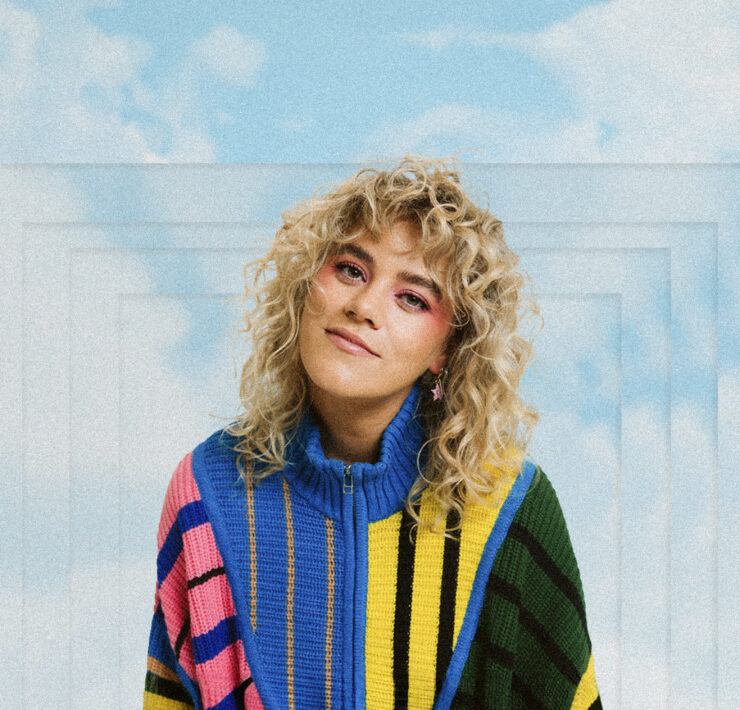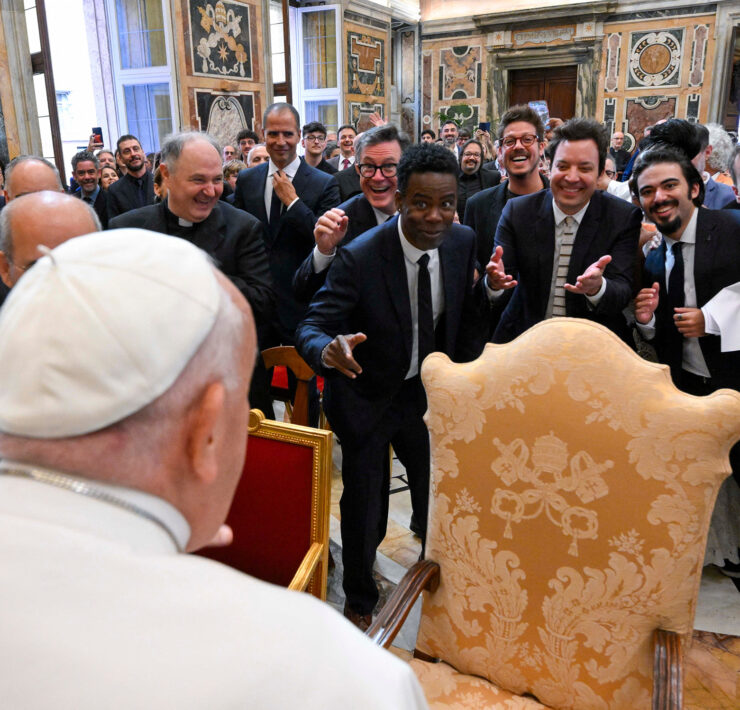Jon Foreman spent most of 2023 celebrating the 20th anniversary of Siwtchfoot’s hit album The Beautiful Letdown. Reflecting on the past, thinking back to his youth and reminiscing on his life put him in a nostalgic mood. And while it’s fun to think on the past, Foreman is more interested in the here and now. There’s plenty of things to look forward to, after all, including his brand new album, In Bloom.
Following his album Departures in 2021, Foreman fully expected his next solo project would be called Arrivals. But the last few years have taken him on a new path of reflection, gratitude and striving to be present. The result is 12 tracks that remind listeners that there’s a lot of things to be hopeful about in this world — no matter what you think or feel right now.
“I think this can be the soundtrack for a new journey for someone,” Foreman said.
Ahead of the album’s release, we sat down with Foreman to hear more about his new project, how he stays present, and why humanity should have a little more hope.
This conversation has been edited for length and clarity.
When did you start working on In Bloom?
So I’ve been working on it, chipping away for the past couple of years. Ever since Departures came out, that was where my headspace was. I’m not the only person who, since 2020, is wrestling with loss and trying to figure out what to do with these things in my life that keep me up at night. Against the backdrop of all that, I think the garden has this amazing metaphor for me to find myself in.
The idea that tomorrow’s fruit is born from yesterday’s crap—the stuff that hurts us, haunts us, the dead parts of ourselves that we let go and allow to fertilize the future. That’s essentially what this record feels like to me. It is certainly a letting go. Even just letting go of “Arrivals” and saying, “Okay, I’m gonna let that go. It’s done, but it was a big deal for me.”
That’s the season I’m in right now, saying yes to things that might feel uncomfortable and stepping into what that looks like.
What are you hoping people take away from this album?
I’m hoping, as I said before, that this can be the soundtrack for a new journey for someone. Even when I propose a toast, singing about both the beautiful and the painful, the bridges I’m still burning. Here’s to all the mistakes we’ve made. That kind of language, I think, embraces an ability to move forward. And that’s what I’m hoping for this album: that it will be a soundtrack for people looking for freedom and new ways to interface with themselves and the world.
I am at the phase in my life where my friend did the math and said that by the time this record comes out, or maybe even now, I will have written and released over 300 songs. When he said it, I thought, that’s not true. Then he did the math, and I realized that’s a lot of songs. I’m at the point where I’m realizing that who I was at 18, 28, 32, 12, or whatever—those parts of myself are still there, but I’m moving forward. I want to continue to grow and learn. The Bob Dylan line referenced at the very beginning of In Bloom comes to mind: “He not busy being born is dying.” I want to be about the business of being born. I hope this album is a soundtrack for new life and for people who are busy being born.
You’re talking about a lot of things changing. Are you someone who likes change or do you prefer things to stay the same?
I think it depends on the change, really. But I think generally I can be someone who looks forward to things. I’m a ruthless idealist who’s always expecting the best to happen.
I genuinely want and expect the best from people, including myself. When I let myself down or let other people down, or when someone lets me down, it can be a shock. “You’re human? Are you kidding me? How could you let this happen?” This record wrestles with that. In “Eulogy,” and the chorus says:
“Every day I write the eulogy for everything I used to be / I’m still aiming for a better me / I’m the mosaic of a shattered man / Broken and becoming who I am”
This encompasses the idea that I’m eulogizing past versions of myself, thankful for where I’ve been, but looking forward to the future with expectations. I am the broken, shattered mosaic of a man who is still becoming, still unfolding, forgiving, and being forgiven.
Many times faith is described in terms of “I was, but now I am” with finality. There’s a beauty to that, yet for me, if we think we’ve arrived, we’ll be very let down by ourselves and by others.
Even biologically speaking, the skin cells we have gotten rid of—are we the same person we were at 12? If someone saw you then and sees you now, would they recognize you as the same person? These are all things the album wrestles with, in a way that hopefully allows past versions of ourselves to be the fertilizer for whatever blooms tomorrow holds.
Last year, Switchfoot celebated the 20th anniversary of The Beautiful Letdown. What was it like to relive that era of your life?
Yeah, I mean, it really was a strange thing to go back in time and sing those lyrics. Heraclitus, the Greek philosopher, says, “You never step into the same river twice.” And I think that is essentially what we were attempting to do. But when you step into the river, of course, it’s a new river every time. When you come back, it’s like the ocean. Every time you come back to the ocean, it looks different, sounds different. Same ocean, but a little different.
I think that’s what I love about music. Statistics hold a very small portion of truth. A metaphor, a simile, a song, a poem, they have a much more expansive understanding of reality that allows for growth. And so I’m really thankful I was singing songs rather than statistics. With a song, I can now sing it with the understanding that the last 20 years have brought, and it can become bigger rather than smaller. There was a lot of singing the same lyric with a different understanding.
But now looking back, I’m thinking that it did influence this solo project. There’s a line in “Eulogy,” the very first verse, that says, “In my rearview mirror dreams, I see myself staring back as a kid, wondering whether I still believe in all those songs the same way I did.” It continues, “Now you’ve got a wife and kids and the scars that life alone can give. Do you honestly believe that we were meant to live?” And that’s the way “Eulogy” opens.
I think it’s such a beautiful thing to have these songs to grow up with and to be able to sing and dance with them. As you grow, they kind of grow with you. I’m thankful that a song I wrote about my 18-year-old girlfriend wasn’t the big hit we’re still trying to sing years later. That might be a little awkward or uncomfortable. I mean, I’ve got a lot of friends in bands where people are like, “Play that one song,” and I know the backstory, and I’m like, oh. I’m sure it means something different now too.
It’s interesting that you were celebrating the past last year and now you’re embracing the future with In Bloom. Is there anything in particular you’re looking forward to in this next season?
So, I hear about the future. As you’re saying that, I’m wondering, rather than the future, if this is an album that’s just celebrating the present. Or at least that’s my hope. My hope is that I am living more fully in the present than I’ve ever done because I feel like the future and the past can be preoccupations with regret or fear, and those preoccupations can take the form of ghosts and phantoms that can haunt the present in unhelpful ways.
So, my hope is that this is an album that addresses fear and doubt, but brings them up in order to move past them and stay focused on the present because this moment is a gift. I think having kids has brought this to my attention more than anything. Every season feels like it will last forever because you’re in it, and every morning they do this one thing, and then suddenly that season’s over and they don’t do it ever again.
I want to be present in the moment right here, right now, because that’s where my kids are, that’s where my friends are, that’s where my wife is, that’s where I’m alive, that’s where the day is dawning upon us. I think that’s where God is, right here, right now, in no other place if he’s not here.
Being present is a great goal. How do you stay grounded and focused on the here and now?
I think meditation is a great thing to practice: prayer, putting your phone down, taking a deep breath, actually paying attention, bringing your presence to the moment, and listening. These are all things that, as I’m saying them, I think, I should do that more, I should do that more. Those aren’t things that I possess. But I do think that surfing, songwriting, and playing music are all things that bring me back to the present. The mistake you made three seconds ago doesn’t exist right here. Oh, you made another one? Okay, move past that one too. In surfing, the same thing applies. With the ocean, you’re always responding; you’re never in control. I think they’re metaphors for life, where you’re continually trying to find the flow, trying to find your melody, your purpose, your song. Gratitude might be at the top of the list of things that allow me to come back to the present and escape the constant barrage of the future or the past.
I think the other thing that helps the most is probably putting the phone down. The phone is an interesting piece to add to this because it brings us into the present and the past. It also brings us around the world, fragmenting us away from not only the moment but this particular location. Suddenly, we’re not only in the past and the future, but we’re everywhere. It’s a beautiful thing to be able to talk to someone around the world, but also, I need to find a way to stay centered, to stay true, to stay human right here.
Some cultures don’t want you to take their picture because it takes a part of their soul. I think of that, and I think there’s something to it. The idea that if you’re transmitting yourself all around the world, that’s where your mind and focus are. You’re giving your energy, your worth. It’s a form of worship that you’re engaged with every day, just staring at this thing. As I’m talking, I’m saying, these are the things I want to do better. As you’re talking, I’m thinking I need to throw my phone out or just be present. Or maybe I’ll just lock it away for a few hours. That might be the medium I have to do.























